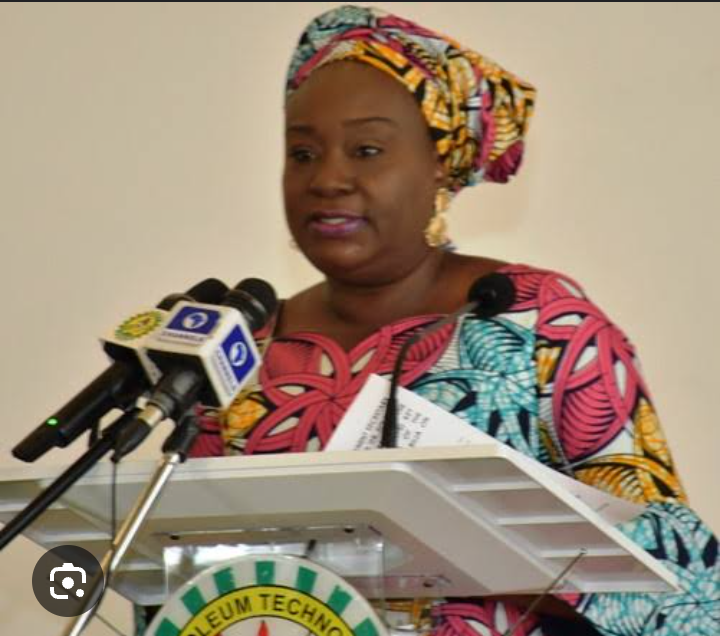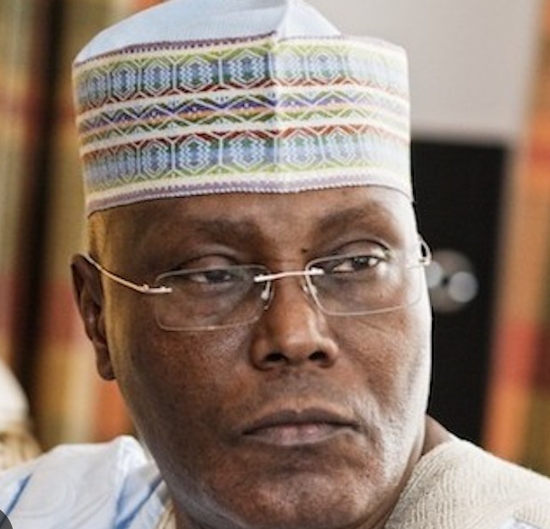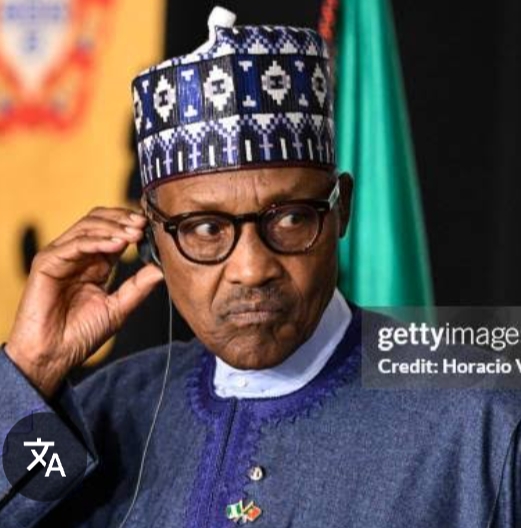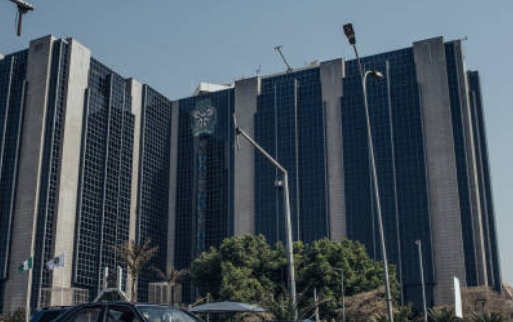News
HND holders must undergo one-year mandatory training- FG insists

By Kayode Sanni-Arewa
The Head of the Civil Service of the Federation, Dr Folasade Yemi-Esan, has asked workers with Higher National Diploma to undergo one-year mandatory training before their conversion from Executive to Officers cadre.
According to a statement on Saturday, Yemi-Esan said this at a virtual interactive session with civil servants in commemoration of the 2024 Civil Service Week with the theme, “Educate an African Fit for the 21st Century: Building Resilient Education Systems for Increased Access to Inclusive, Life-long, Quality and Relevant Learning in Africa.”
The one-year mandatory training programme to bridge the gap between polytechnic awarded Higher National Diplomas and university degrees has been controversial between the National Universities Commission and the National Board for Technical Education.
A bill was passed at the Ninth National Assembly in 2021 to end the dichotomy but was not signed into law by the last administration of President Muhammadu Buhari.
Thus, NBTE, which regulates technical and vocational education, had to introduce what it describes as a one-year top-up programme which offers a platform for HND holders to level up towards obtaining a bachelor’s degree.
While fielding a question from one of the civil servants during the virtual meeting, Yemi-Esan, said, “The curriculum for HND and B.Sc holders were not the same, hence, HND graduates would have to undergo mandatory one-year training before conversion from Executive to Officers’ cadre.”
Adebayo Hassan in Grade Level 14 had earlier asked about the dichotomy between B.Sc and HND holders in the Service and what the Federal Government was doing to bridge the gap.
Speaking on the 2024 Civil Service Week theme, Yemi-Esan emphasised the need for education to be accessible, inclusive and of high quality, while highlighting the need for it to constantly remain relevant to the rapidly evolving demands of the modern world.
According to her, “The theme also speaks to how the Nigerian Civil Service is leveraging learning and development to enhance the capacity and capability of its workforce with a view to delivering on national priorities.”
The Head of the Civil Service disclosed that the rapidly changing work environment as well as demands for greater efficiency have necessitated the adoption of a Performance Management System by the Nigerian Civil Service, adding that PMS Policy and Guidelines have been developed and circulated to all Ministries, extra-ministerial Departments and Agencies.
She pointed out that core teams for its implementation have been duly constituted.
According to her, “PMS implementation has been cascaded to the Ministries, with the Permanent Secretaries serving as the primary drivers.
“In this regard, performance contracts are to be further cascaded down to the last officer in each MDA.
“This new system will assess each officer’s performance solely based on their respective Key Performance Indicators and it will enable tracking of job objectives across all MDAs.
“By implication, each officer across the Service can clearly link his goals and objectives with those of his department, those of the respective Ministry and the national KPIs.
She described the digitalisation of work processes in the Service as another reference point in the ongoing transformation of the Federal Civil Service.
She further stressed that the Office has fully digitalised all personal and policy files and is implementing digital transaction workflow processes, as all official correspondences, in the form of memos and internal and external circulars, are now being processed electronically through the Enterprise Content Management solution.
(Punch)
News
Kill your 2027 election, PDP, LP chieftains advise Atiku

By Kayode Sanni-Arewa
A member of the National Executive Committee of the Peoples Democratic Party, Diran Odeyemi, and a chieftain of the Labour Party, Anslem Eragbe, have advised former Vice President Atiku Abubakar to kill his 2027 presidential election ambition.
Both Odeyemi and Eragbe said the South should be allowed to rule for eight years.
They said the 2027 southern president might not necessarily be President Bola Tinubu.
Eragbe, in an interview with Sunday PUNCH, argued that Atiku should not have contested the 2023 presidential election because it was the turn of the South to produce a president.
He said, “Atiku was not supposed to contest the 2023 presidential election because it was the turn of southern Nigeria. It is the turn of the South till 2031.
“Being a former Vice President of Nigeria for eight years; Atiku knows Nigeria’s power drill and equation. He should support younger Nigerians to power and provide guidance in 2027.”
Asked if the former Vice President would breach any law if he chooses to run for the nation’s highest office in 2027, Eragbe said the PDP stalwart “is entitled to his ambition and aspirations, adding however that “2027 – 2031 is for southern Nigeria.”
According to him, the 2027 presidency shall remain in southern Nigeria and should be zoned to the South-South region.
“It should be further micro-zoned to the (defunct) mid-Western region. I mean the defunct Bendel, now Edo and Delta states. We expect the major political parties to do this for equity, justice, fairness and parity.
“However, should President Bola Tinubu, win the 2027 presidential election and continue till 2031, power shall return to Northern Nigeria,” he added.
The former President of the Student Union Government of Ahmadu Bello University, Zaria, added that when compared with other geo-political zones in the country, the South-South had spent the least number of years on the presidential seat.
“The region that has ruled the least in Nigeria is the South-South with only five years under Goodluck Jonathan and should rule Nigeria again beginning from 2027.
“When put together, the North-Central spent a total of 17 years and 11 months, North-West, 17 years, three months; North-East, 10 years, three months; South-West, 15 years, four months by the time Tinubu finishes his term in May 2027; South East spent five years and nine months and the South-South, the only region to spend five years only on the presidential seat,” he added.
Eragbe called on the political parties to identify credible politicians, regardless of their financial status, to fly their flags for the various elective offices, stressing that 2027 would be another opportunity to right the wrongs of the past.
Speaking with Sunday PUNCH, Odeyemi stated that the ex-vice president’s participation in the 2023 presidential election and his perceived ambitions for 2027 were the causes of PDP crisis.
He charged Atiku to bury his ambition, adding that once the former vice president failed to declare interest in 2027, the crisis in the party would be over.
The 2023 election was originally supposed to be between southerners, as former President Muhammadu Buhari, a northerner, had just completed eight years in office. However, Atiku insisted on exercising his rights, which is why there is a crisis in the PDP,” he stated.
News
Why Buhari govt was shoved aside – IBB

By Kayode Sanni-Arewa
Ex-military head of state, Ibrahim Badamasi Babangida (IBB), has stated that he shoved aside Muhammadu Buhari’s regime because he believed his policies were detrimental to the nation’s progress.
The former military leader disclosed this in his autobiography, ‘A Journey In Service’, launched in Abuja on Thursday.
Babangida was chief of staff to Buhari, who ousted Shehu Shagari’s civilian government in the December 31, 1983 coup.
After the military coup that replaced the civilian government of Shehu Shagari with a military regime led by Major General Muhammadu Buhari, Ibrahim Babangida assumed the Chief of Army Staff role.
However, he became increasingly dissatisfied with the Buhari government’s policies and leadership style, which he described as draconian.
Recalling how he journeyed from Minna to Lagos on August 27, 1985, to assume office, Babangida said tension had already begun to build up since the start of the year, and a change in leadership had become necessary.
He said, “On that day, it became my lot to step into the saddle of national leadership on behalf of the Nigerian armed forces. The change in leadership had become necessary as a response to the worsening mood of the nation and growing concern about our future as a people. All through the previous day, as we flew from Minna and drove through Lagos towards Bonny Camp, I was deeply reflecting on how we as a nation got to this point and how and why I found myself at this juncture of fate.
“By the beginning of 1985, the citizenry had become apprehensive about the future of our country.
The atmosphere was precarious and fraught with ominous signs of clear and present danger. It was clear to the more discerning leadership of the armed forces that our initial rescue mission of 1983 had largely miscarried. We now stood the risk of having the armed forces split down the line because our rescue mission had largely derailed. If the armed forces imploded, the nation would go with it, and the end was just too frightening to contemplate.
“Divisions of opinion within the armed forces had come to replace the unanimity of purpose that informed the December 1983 change of government. In state affairs, the armed forces, as the only remaining institution of national cohesion, were becoming torn into factions; something needed to be done lest we lose the nation itself. My greatest fear was that division of opinion and views within the armed forces could lead to factionalisation in the military. If allowed to continue and gain root, grave dangers lay ahead.”
News
How CBN Spent $8bn On Naira Defence Against Dollar At FX Market

By Kayode Sanni-Arewa
The Chief Executive Officer of Financial Derivatives, Bismark Rewane, has revealed that the Nigerian government, through the Central Bank of Nigeria, has spent almost $8 billion defending the naira at the foreign exchange market in the last months.
Rewane, a renowned economist, disclosed this at the weekend in an interview with Channels Television.
He was reacting to the decision by the Monetary Policy Committee to retain the country’s interest rate at 27.50 percent at the same time, maintaining other MPR parameters.
Explaining the reason the Naira has appreciated to N1,505 and N1,507 across parallel and official foreign exchange markets, he noted that the apex bank has several initiatives to support the country’s currency.
“We’ve also borrowed $4 billion in bond issues. When you take a look at that, you’ll see there is a lot of work. We’ve actually spent almost $8 billion trying to support the naira at current levels,” Rewane stated.
According to him, Nigeria’s January inflation figure, which dropped to 24.48 percent after the Consumer Price Index rebasing, does not reflect the reality of ordinary Nigerians.
“There’s no way that inflation can reduce by 10% in a short period. The man on the street does not believe that inflation has come down as sharply as that,” he said.
-

 News19 hours ago
News19 hours agoJust in : Senator Gumau is dead
-

 News20 hours ago
News20 hours ago10th NASS Committed to Constitutional Reforms – Kalu
-

 News19 hours ago
News19 hours agoRep Salam Congratulates Governor Adeleke On Successful Conduct Of LG Elections
-

 Metro12 hours ago
Metro12 hours agoFire engulfs MTN office in Oyo
-

 Metro12 hours ago
Metro12 hours agoInsecurity! Gunmen invade church, slash pastor’s 2 fingers
-

 News19 hours ago
News19 hours agoI have never insulted President Tinubu in my entire life”-Gov Adeleke
-

 News18 hours ago
News18 hours agoPolice seal OSSIEC office, officials nabbed, says chairman
-

 Foreign11 hours ago
Foreign11 hours agoPentagon set to sack 5400 staff as attack hits Trump’s downsizing plan







